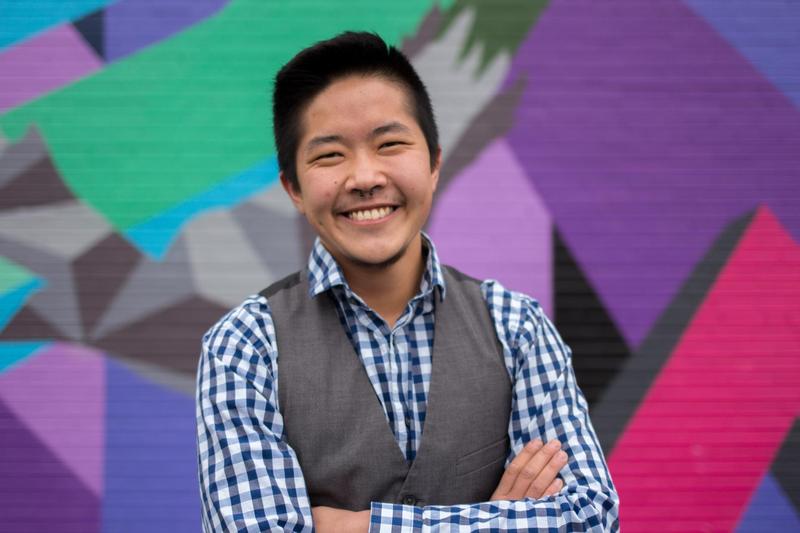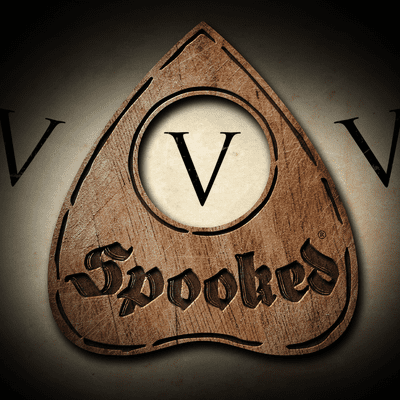KATHY: Tobin.
TOBIN: Kathy.
KATHY: So we started yesterday like we do so many days -- and that is with a flurry of push notifications and news alerts.
TOBIN: Right. So, President Donald Trump announced on Twitter that the military would ban transgender people from serving in any capacity.
KATHY: Which, in our circles, was pretty devastating.
TOBIN: Yeah.
KATHY: So we thought we'd jump in with a quick bonus episode of Nancy.
TOBIN: Right. So, just to give you an idea, there may be as many as 15,000 transgender people currently serving in the Armed Forces.
KATHY: And starting last summer, they were allowed to serve openly in the military.
TOBIN: Uh, and then ... Wednesday happened.
KATHY: Uh-huh.
TOBIN: There's still a lot of confusion about what the Tweets actually mean. The Pentagon seemed caught off guard and the story continues to develop.
KATHY: So, as we're trying to get our head around all of this, we wanted to take a step back and talk to someone who not only served, but also navigated what it's like to be trans while in the service.
[BEAT]
JORDAN: My name is Jordan Blisk. I'm 23. I, uh, go to the University of Colorado Law School, and I served as a senior airman in the United States Air Force for 4 years.
KATHY: So, how did you find out about the news?
JORDAN: Um, I woke up to it and it was all over my social media. Many of my friends are trans themselves, and a good chunk of them are veterans, so this is an issue that definitely impacts me and my community very closely. So it was the first thing I saw when I woke up, and then I started getting some emails, and now we're here.
TOBIN: What was your reaction when you heard?
JORDAN: I -- I -- I was honestly pretty devastated. It -- it really hurt. There was some part of me that just felt ... I just felt my heart sink, y'know? Because we've made so much progress and we've worked so hard and this is a battle that I've been a part of for so many years. And, y'know, to see all of it kind of just so blatantly disregarded by our Commander-in-Chief, um ... it's -- it's disheartening, to say the least.
KATHY: Jordan, will you tell us about when you enlisted in the military and why you did so?
JORDAN: Yeah, sure. I was 17 when I enlisted. I enlisted in 2011. I'm a fifth-generation military kid, I guess. My family has been in all branches, and so we have a very big military tradition going on and so it was something that was always in the back of my mind, but one I hit around my junior year, I started kind of realizing, y'know, college was expensive. And then I didn't want to come out with a lot of student loan debt, and so I started looking into the educational programs that the military had to offer.
KATHY: To what extent were you able to be out in the military?
JORDAN: As a transgender person?
KATHY & TOBIN: Yeah.
JORDAN: Not at all.
KATHY & TOBIN: Hmm.
JORDAN: There was never a ban in place like Congress put "Don't Ask, Don't Tell" as a ban against gays and lesbians. There was never an official ban, per se, against transgender personnel, but it was a de facto ban based off of administrative policies that essentially left no room for transgender members to exist. And so if you came out as trans, you're immediately separated. And so, for me, since I joined for educational benefits, I was very, very afraid of losing those, and afraid of losing my job, and afraid of, y'know, losing the community that I had built at my base and serving in the reserves. And so I started medically transitioning with testosterone about 6 months or so before I separated.
KATHY: Hmm.
JORDAN: But they were not aware that I was transgender or anything like that at the time, because it would have led to an immediate discharge.
TOBIN: Did you know people who were immediately discharged for being trans?
JORDAN: Yes.
TOBIN: And so that influenced your decision on being out and when to transition and all of that.
JORDAN: Absolutely. And a lot of it, too, had to do with the fact that I was stationed at a base that was a little bit more conservative and I didn't feel that my chain of command would have been supportive of me coming out and transitioning. I do know that there were people that, when I was in, were out to certain people in their command, but it was a very hush-hush, secrecy-type thing, and it was only when they knew they were supportive. It wasn't -- it wasn't something that people would advertise by any means. We didn't have the same freedom that -- that gays and lesbians did at that time to be out about our gender identity.
KATHY: Did you feel like there were -- I dunno -- ways that you felt unsafe in the military?
JORDAN: Absolutely. Yeah, I did not feel safe because, uh ... when I was in, I was in the reserves. And so I did a year and a half on active duty, um, but I was not really even out to myself as trans at that point, so it didn't cause too many problems. But I was kind of out-ish as a lesbian at the time, and that -- I -- I definitely experienced some -- some issues for that. And so that put in some fear for me as I came out to myself as transgender of, y'know, "Well, you've already experience this much discrimination, and this -- and being gay in the military is now okay, so what's it gonna be like when you come out as trans and they're not okay with you being trans? What's gonna happen then? Like, you're gonna have no protections, you're gonna have no one watching your back." And so I definitely had a lot of fear there, but it also carried over into my personal life because I was a reservist. And so I was only really on base about two days a month, three weeks during the summer. But during the rest of the month, I would still have to use my deadname and female pronouns whenever we were outside the house because a lot of people in my unit were attending college at the same university that I was. That was really, really difficult, to kind of -- to go home and feel affirmed, but then go out into society and have the people that I love the most having to refer to me using a name and pronouns that just don't align with my gender identity whatsoever. And it also caused even more physical problems -- I actually developed a UTI because I was so afraid of going to the restroom in college. Because I was being -- I had some altercations for being too masculine in the women's room, but I was afraid to use the men's because of people in my unit and then being outed and kicked out. It pretty much controlled my life for a while.
KATHY: Wow.
TOBIN: Yeah. Were there ways that being the military also felt like a safe space for you? You talked a little bit about that before.
JORDAN: Yeah. It definitely was. Especially in the beginning. It gave me a place to be myself and not have other people telling me how I was supposed to be, because when the military brings people together, y'know, you come from all corners of the US. And you're bunking with somebody from Nebraska and someone from the Bronx, and they're both five feet away from you and you're wearing the same clothes and carrying the same stuff. So, y'know, you learn a lot about people and you learn a lot about the world and you learn a lot about yourself. And through that I developed the vocabulary to say, "I'm transgender." Because when I was growing up in the conservative Midwest, that just wasn't an option. There weren't words for that. Even if people didn't like other people being gay, the concept, at least, was understood. But the concept of being transgender was something that no one ever really explained to me until I was an adult. It gave me an outlet and a -- and a place to learn and to kind of ... be one of the guys. And to, uh, y'know, fix planes and get dirty and do all of the things that I wasn't able to do as a kid. And it felt really great, and it was a really empowering experience for me.
TOBIN: Given all these difficulties that you've already laid out, like, what do you want people to understand about this added potential ban from President Trump on transgender military service?
JORDAN: I think it's completely unnecessary, and I think it's going to remove essential personnel from the military who are incredible, dedicated, hardworking troops. I think it's ridiculous to remove them for something like their gender identity. If the military stepped forward and said, "Hey, we're gonna support these troops, we're gonna do right by them, and they deserve the respect they're entitled to just like any other veteran," I think the culture would change. I think a lot of these barriers would go away. But I think a lot of the problems that he's talking about are self-created. Because if you're talking about unit cohesion, there's only going to be a problem if you tell them there's going to be a problem.
[CREDITS MUSIC STARTS]
TOBIN: Jordan Blisk is a former senior airman in the US Air Force Reserves.
KATHY: There's a really cool comic about him and his experiences being trans in the military over at Buzzfeed. We've got a link in the show notes.
TOBIN: I'm Tobin Low.
KATHY: I'm Kathy Tu.
TOBIN: And Nancy is a production of WNYC Studios.
[CREDITS MUSIC ENDS]
Copyright © 2019 New York Public Radio. All rights reserved. Visit our website terms of use at www.wnyc.org for further information. New York Public Radio transcripts are created on a rush deadline, often by contractors. This text may not be in its final form and may be updated or revised in the future. Accuracy and availability may vary. The authoritative record of New York Public Radio’s programming is the audio record.






